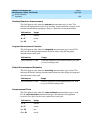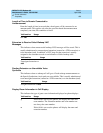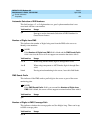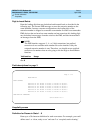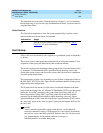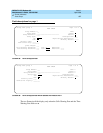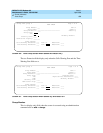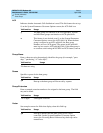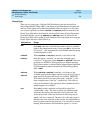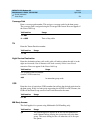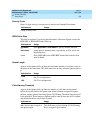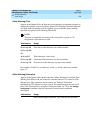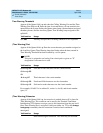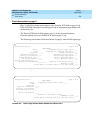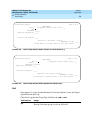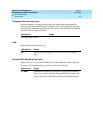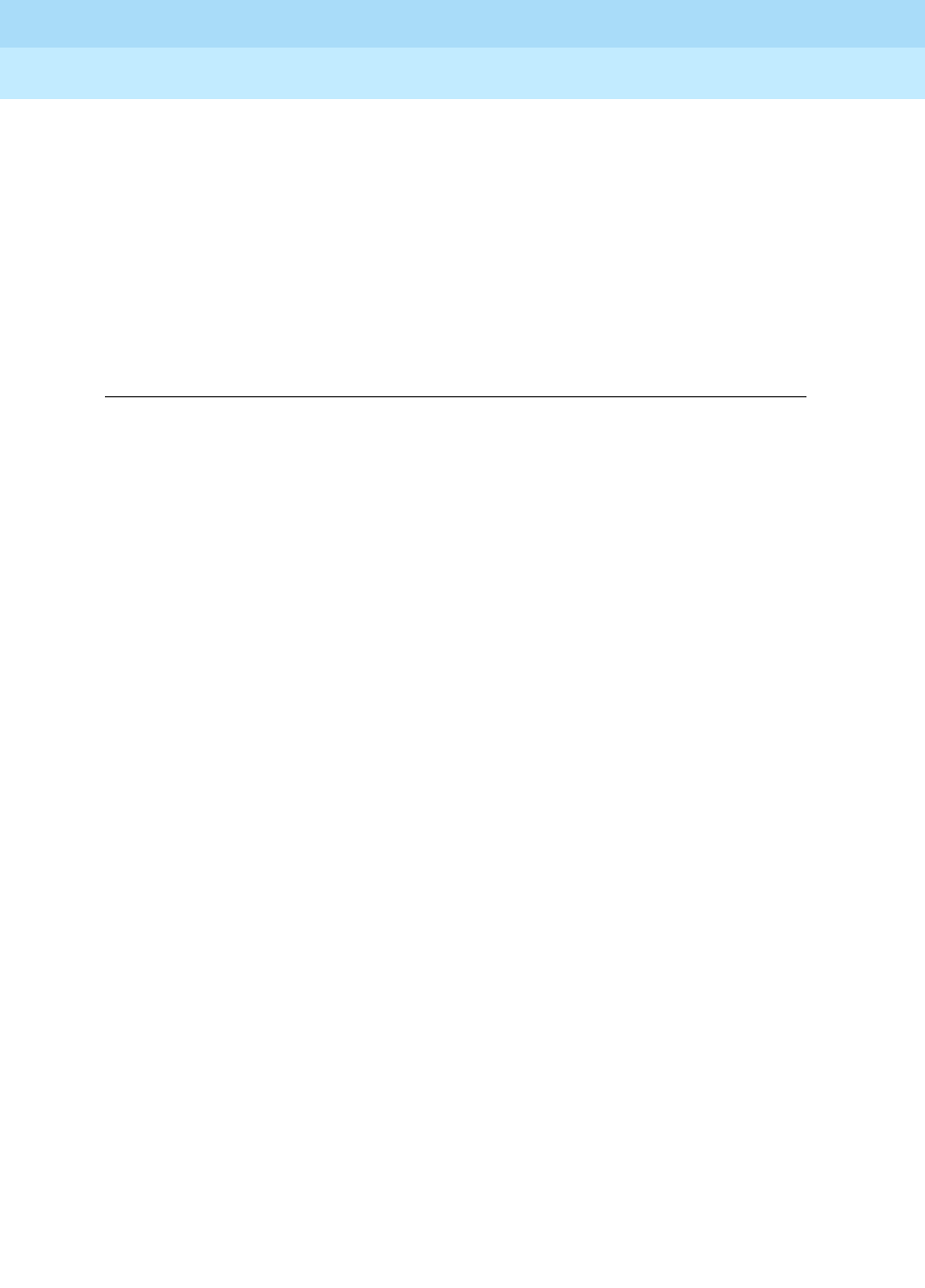
DEFINITY ECS Release 8.2
Administrator’s Guide
555-233-506
Issue 1
April 2000
Screen reference
700Hunt Group
17
Group Type
There are six group types: Uniform Call Distribution (ucd-mia and ucd-loa),
Direct Department Calling (DDC), and Expert Agent Distribution (ead-mia and
ead-loa). Each option uses a different method to select an agent for a call when
two or more agents are available.
ucd-loa and ead-loa cannot be entered in the
Group Type field unless the CentreVu Advocate field on the System Parameters
Customer-Options screen is
y. ead-mia and ead-loa cannot be entered in the
Group Type field unless on the System Parameters Customer-Options screen, the
Expert Agent Selection (EAS) field is
y.
Valid entries Usage
ddc
Enter ddc when the call should be routed to the first available
agent in the administered string. Group type
ddc is also known
as “hot seat”. “ddc” distribution is not available when the group
is administered as a skill.
ucd-mia When ucd-mia or ucd-loa is entered, a call routes to the
most-idle agent (“ucd-mia”) or the least occupied agent
(“ucd-loa”), respectively. Enter
ucd-mia or ucd-loa if the hunt
group has an AUDIX or Messaging Server Adjunct message.
One of these entries is required when supporting the Outbound
Call Management feature and when the Controlling Adjunct
field is
asai.
ucd-loa
ead-mia
When ead-mia or ead-loa is entered, a call routes to the
available agent with the highest skill level for the call. If two or
more agents with equal skill levels are available, DEFINITY
ECS routes the call to the most-idle agent (“ead-mia”) or the
least occupied agent (“ead-loa”), respectively. This allows a
call to be distributed to the agent best able to handle the call if
multiple agents are available.
ead-loa
circ
Enter circ (circular) when the call should be routed in a
“round-robin” order. The order in which you administer the
extensions determines the order that calls are directed. The
switch keeps track of the last extension in the hunt group to
which a call was connected. The next call to the hunt group is
offered to the next extension in the circular list independent of
how long that extension has been idle. You cannot use circular
hunting with automatic call distribution, queues, or vectors.



